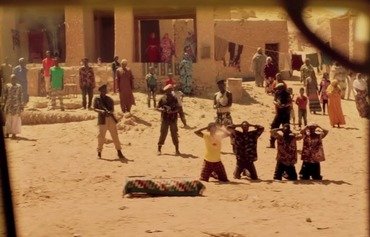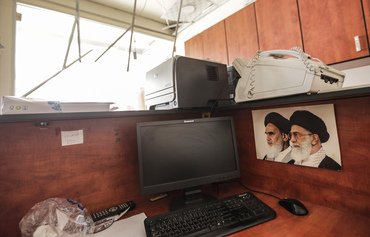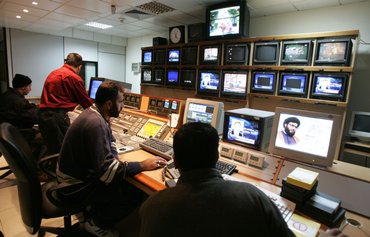Iran's recent incursion into Syria's television production sector could have catastrophic consequences in the long run, a media expert warned Al-Mashareq.
By extending its influence into broadcast media, Iran will be able to put its own spin on political and religious matters, spreading its influence among a large segment of the Syrian population, he cautioned.
Last month, an Iranian delegation led by Islamic Republic of Iran Broadcasting (IRIB) chairman Abdulali Ali Asgari paid a visit to Damascus.
Meeting with Syrian Information Minister Mohammad Ramez Tourjman on October 13th, the two sides discussed the need to strengthen their co-operation in the media sector, Syrian state media reported.
Particular emphasis was placed on Iran's provision of technical support and support for television drama production, state media said.
A few days later, on October 15th, the two discussed the establishment of mechanisms for media co-operation.
These included "training courses for cadres, exchange of visits on a continuous basis and the production of joint media materials to better promote the common culture between the two countries", state media said.
In a press statement following the meeting, Tourjman affirmed the importance of expanding media relations between Syria and Iran and "consolidating cultural relations to contribute to fortifying future generations in the region".
Meanwhile, Syrian Prime Minister Imad Khamis discussed ways to "develop bilateral media relations to be in line with the level of the strategic political and economic ties binding the two countries", according to state media.
"We are ready to co-operate in the technical, technological, training, internet and information technology fields, among others, for the benefit of both our countries," Asgari said following the meeting.
He highlighted the "fruitful results of the meetings" and noted there had been "constructive co-operation with the Syrian media institutions".
No casual matter
"This may appear to some as an ordinary or casual matter, when in fact it is very serious and requires close examination," said Mazen Zaki, director of the new media department at Ibn al-Waleed Studies and Field Research Centre.
Iran's pointed incursion into the television production sector means the dissemination of the views of its Islamic Revolutionary Guard Corps (IRGC), because it essentially controls all Iranian institutions, he told Al-Mashareq.
This would be akin to brainwashing, he said, and would aim to raising an entire generation loyal to the IRGC by imposing its own narrative on the Syrian people.
"The IRGC made a similar incursion into Lebanon after the emergence of Hizbullah," he added, using the party's media to impose its own version of the historical narrative and promote its political, economic and military institutions.
Hizbullah's satellite television station, Al-Manar TV, which broadcasts from Beirut, was launched in 1991 with the help of Iranian funds.
The US designated it as a "specially designated global terrorist entity" in 2004.
Al-Manar TV, along with Hizbullah's other print and radio outlets, fostered the growth of a generation loyal to the IRGC and Hizbullah, which is the IRGC's representative in Lebanon and the region, Zaki said.
"The IRGC knows full well that the military battles in Syria will come to an end sooner or later, and it therefore needs non-military tools to tighten its grip over Syrian society," he said.
The sponsorship of Syrian drama will serve as an effective tool for this purpose, Zaki said, because the Syrian people love television dramas of all kinds.

![An Iranian delegation led by Islamic Republic of Iran Broadcasting chairman Abdulali Ali Asgari signs a media co-operation agreement with Syrian counterparts during an October visit to Damascus. [Photo circulated on social media]](/cnmi_am/images/2017/10/31/10181-Syrian-Iranian-agreement-600_384.jpg)






